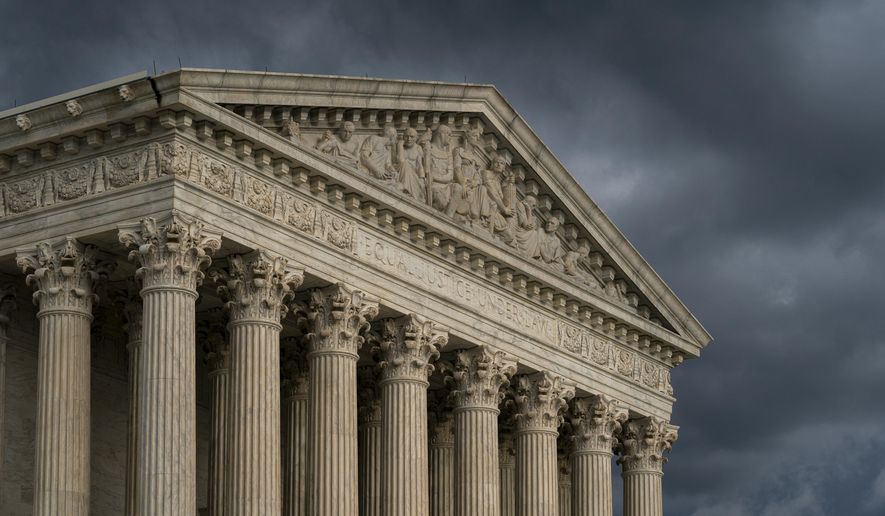The U.S. Supreme Court ruled Monday that federal agencies can withhold from the public proprietary information about the private businesses with which they work.
In a 6-3 decision, the high court said agencies can deny Freedom of Information Act requests for “confidential” data about contractors that could affect those businesses’ competitive edge.
“At least where commercial or financial information is both customarily and actually treated as private by its owner and provided to the government under an assurance of privacy, the information is ’confidential’ within the meaning of Exemption 4,” Justice Neil M. Gorsuch wrote in the 12-page majority opinion, referring to a FOIA rule.
He was joined by Chief Justice John G. Roberts Jr. and Justices Samuel A. Alito Jr., Clarence Thomas, Brett M. Kavanaugh and Elena Kagan.
The ruling reversed a lower court decision in a lawsuit that involved a South Dakota newspaper seeking information about the food stamp program. The Argus Leader, one of state’s largest newspapers, submitted a FOIA request to the U.S. Department of Agriculture for data about the Supplemental Nutrition Assistance Program.
But in Food Marketing Institute v. Argus Leader, a trade association of grocery stores argued that disclosing where and how much SNAP recipients spend their benefits violated the stores’ privacy.
Under FOIA, the government is allowed to deny requests for any of nine specified exemptions to the open records law. Exemption 4 deals with trade secrets.
Since 1974, federal courts have ruled that the government may withhold information if its release would cause “substantive competitive harm” to a business.
Writing the dissenting opinion, Justice Stephen G. Breyer said the majority’s ruling values secrecy over openness.
“The whole point of FOIA is to give the public access to information it cannot otherwise obtain,” Justice Breyer wrote in the five-page dissent. “After all, where information is already publicly available, people do not submit FOIA requests — they use Google.”
He was joined by Justices Ruth Bader Ginsburg and Sonia Sotomayor.
The ruling was cheered by an array of businesses and trade groups that argued in court briefs that the food stamp case would have allowed agencies to divulge even more confidential information.
“Small business owners expect privacy when it comes to their confidential information and the Supreme Court decision today reaffirms just that,” Karen Harned, executive director of the National Federation of Independent Businesses, said in a statement.
Journalists and advocates for open government decried the decision, saying it will lead to more secrecy.
“We’re disappointed in today’s outcome, obviously,” Cory Myers, news director for the Argus Leader, said in a statement published to the paper’s website. “This is a massive blow to the public’s right to know how its tax dollars are being spent, and who is benefiting.”
The newspaper made what it called a routine request in 2011 for USDA records on where SNAP recipients spend food stamp dollars as part of a larger investigation on fraud.
The USDA provided names and addresses but not the data, a gesture that Justice Gorsuch called an attempt by the agency to “meet the paper halfway.”
The Argus Leader won a federal lawsuit after a two-day bench trial, and the Food Marketing Institute took up the case and challenged the decision.
• Christopher Vondracek can be reached at cvondracek@washingtontimes.com.




Please read our comment policy before commenting.